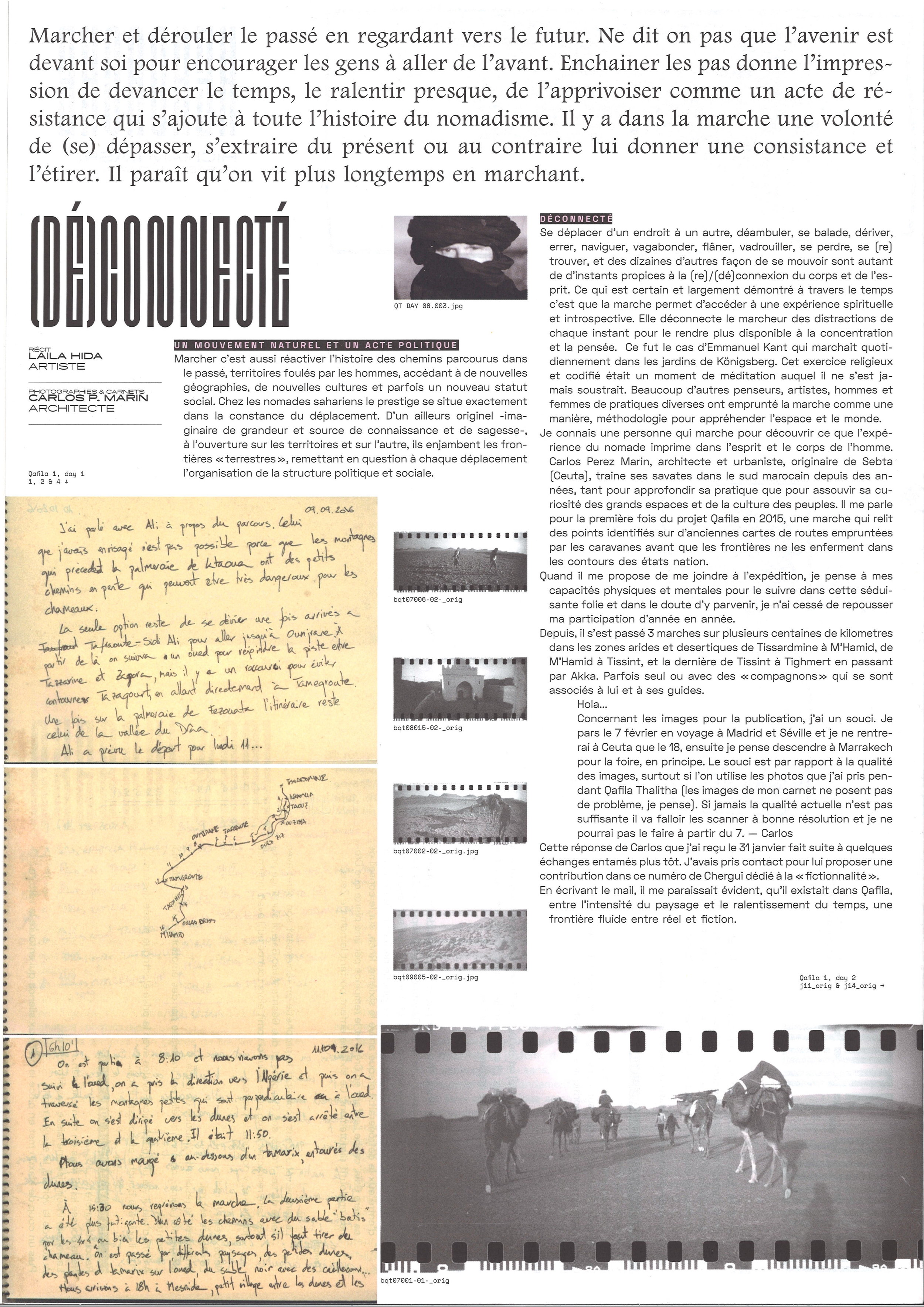Beyond Qafila Thania brings together researchers from Sudan, Morocco, Spain, Italy and the Netherlands ( Amado Alfadni, Olì Bonzanigo, M'barek Bouhchichi, Pau Cata, Laila Hida, Francesca Masoero, Carlos Perez Marin, Leire Vergara and Heidi Vogels) researching in architecture, sociology and the visual arts actively approaching the cultural, social and geopolitical space of the Sahara desert, tracing back the stories of the old caravans, learning about its influence in current day cultures and societies.
Beyond Qafila Thania facilitates an inspiring frame to research on topics such as contemporary nomad culture and architecture, current immigration routes, history of slave trade and knowledge exchange and mobility within the Mediterranean, Sahel and West Africa.
Beyond Qafila Thania will take place from the 22nd October to the 24th November in the provinces of Zagora, Tata and Guelmim in Morocco. It develops through different stages, including research and archiving, site visits, interviews, public events, a nomadic residency in the desert, round tables and a final exhibition.
Beyond Qafila Thania is a project develop by CeRCCa and Marsad Drâa through Platform Harakat, Project QAFILA and Qanat in the framework of Kibrit.



